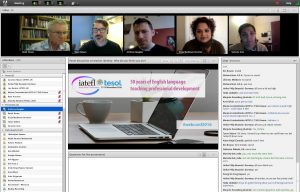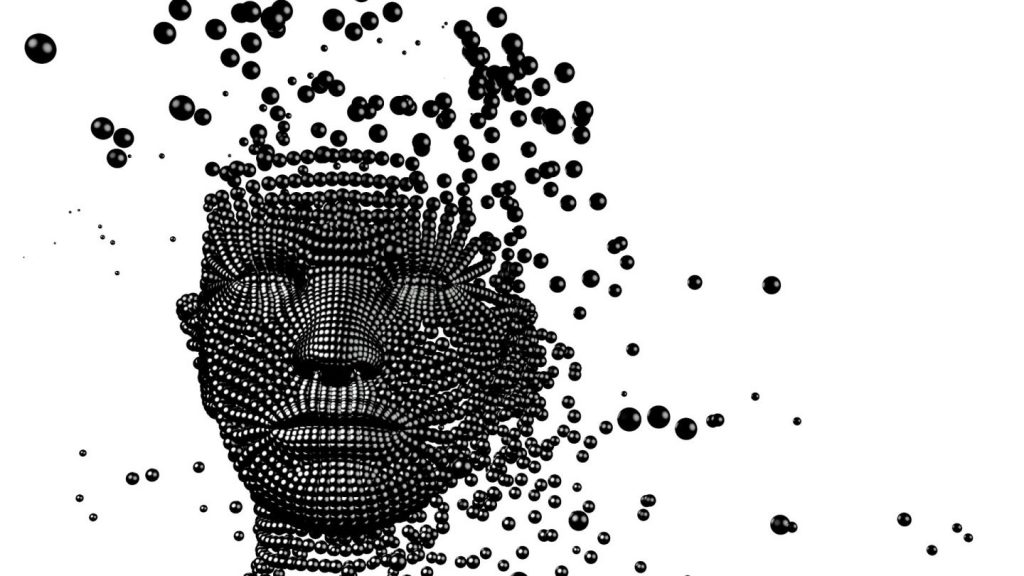Looking into teacher identity
Who are you? Tyson Seburn. Scorpio? Tiger? Philosophy major? I used to think so. TESL Toronto President? Conference organiser? Writer? Grad student? I was once. Canadian? Author? EAP instructor? TDSIG peep? Yes, this guy exists.
What is your teaching philosophy? Ugggh. That one’s the worst.
I’ve questioned my identity a lot, but here let’s focus on career. We all probably do when push comes to shove. I often garble out something about EAP and guided discovery and teacher development, but do I make sense? I often stare at the wording of my bio when submitting one for a conference proposal. What do I focus on? What description most accurately portrays how I see myself? How do I want others to see me? In 50 words or less. See my LinkedIn profile for one version; my about me page here for another; even the little bits of my email signature. I’m never fully satisfied with them, however.
Teacher identity is an ever-present interest insofar as it’s difficult to concretise and continues to shift. Once you feel you’ve figured it out, it gets called into question again. In a way, I like that.
 At last week’s joint IATEFL/TESOL Web Conference, I was privileged to be part of a discussion panel on teacher identity with Divya Madhavan, Varinder Unlu, David Nunan, and Anthony Gaughan. Many themes and threads emerged from the both panelists and participants; we could have gone on indefinitely. You can watch the session here for the next while anyways. I think we’re all far enough into our careers with X number of accomplishments that we can list and advice we can give, but what really shapes our identities as teachers? With Anthony’s help on some guiding questions, here goes:
At last week’s joint IATEFL/TESOL Web Conference, I was privileged to be part of a discussion panel on teacher identity with Divya Madhavan, Varinder Unlu, David Nunan, and Anthony Gaughan. Many themes and threads emerged from the both panelists and participants; we could have gone on indefinitely. You can watch the session here for the next while anyways. I think we’re all far enough into our careers with X number of accomplishments that we can list and advice we can give, but what really shapes our identities as teachers? With Anthony’s help on some guiding questions, here goes:
- What does it mean to you personally to have a professional identity?
It gives me a sense of purpose and a fosters a desire to expand and do. Being aware of my teaching preferences, my areas of interest and expertise, and how I fit in to the larger professional world, helps me determine what I want/need to do and learn next. It creates a base for me to consider how I’m perceived by colleagues, students, and even those not directly connected to ELT. It gives me confidence in my practice and that when I make errors, I can accept it and modify. Without an understanding of my professional identity, these all become more stagnant. - How far is it useful to be conscious of your identity as a teacher?
I didn’t have a strong sense of who I was as a teacher for quite a long time into my teaching career, partially because I didn’t identify teaching as my profession. When one doesn’t recognise one’s job as a career in itself, a professional identity is replaced by survival and a constant (albeit sometimes uninspired) search for another career. The day-to-day classroom ceased to exist when I left through the school doors. I perceived myself as a likable character in the classroom, a capable explainer, and interested party to the random ELT-related conversation of the staff room. But I didn’t engage outside my little classroom world much, and as a result, had no real point of reference on how I fit in compared to others in the profession. Ignorance, if I’m honest. This period lasted a long time, actually. I believe that this lack of exploration outside my bubble, for me anyways, made determining where I wanted to go with my career and who I wanted to be as a teacher pretty stagnant. It was not until I began expanding my knowledge of the ELT world, familiarising myself with the conversation that came before me, and engaging with the community that I began to see myself as who I am today. Once I knew these things, it became far more organic to develop my own identity. - How far is a teacher’s identity linked to their sense of value, and how can teachers’ associations foster this sense of identity and value?
Becoming involved in the greater ELT world was the first solid step towards my own professional identity. Yes, when you’re in your classroom and your lessons, you can localise your identity (e.g. I teach B2; I subscribe to dogme; I use games, etc.), but from my experience, this identity is exponentially expanded when looking outside that concentrated environment. Attending local (then later international) conferences, taking a chance on contributing through giving talks, and eventually joining committees in teacher associations, have refined how I perceive myself. When you see how you react to what others discuss, when you see how your teaching experiences relate to others’ experiences, when your contributions are valued–they shape and define your identity. It’s not static; it’s fluid through new experience, but it’s a starting point. - What experiences have most deeply affected your own sense of professional identity?
I’ll jump to one aspect of my current identity: EAP professional in a university context. There can be an unfortunate disconnect between an EAP instructor’s perception of themselves at a university compared to the other academics and faculty within it. Circumstance and attitude towards language teachers and language learners are not entirely separate. Sometimes we perpetuate a ‘deficiency’ and ‘othered’ identity within the academic institution, fueled by a perceived lack of respect by or lack of relevance to the academic community. This can lead to a feeling of inadequacy or unsuitability to participate in academic endeavours and broader discussion or events, yet these are exactly what we need to be a part of. It’s important we recognise our value within this teaching community, engage with those outside the language teaching side of things, and broaden understanding of the university and its affairs–the cogs and gears that work in combination with each other (and sometimes despite each other). Pushing myself to become involved in events and communities within my faculty has definitely shaped my own sense of professional identity. It’s shown me two valuable lessons: one, others at the university share many of the same gains and struggles from their classes as I do, particularly in relation to supporting international students; and two, I add value to the discussion among them. Both these interactions and learning about the different functions within the university have situated my identity firmly in this context as a colleague with expertise in language learning and academic skills. But I’m sure it’ll change with new experiences.
In the end, even when comfortable in our own teacher skins, explaining who we are to others and advising them on how to figure it out is completely complex and complicated. And that’s OK. I may feel pretty sure of my professional identity at the moment, but I’ll still take longer than I should to play around with my bio every single time I need it.
Maybe you might consider these questions yourself. Let me know if you figure out with certainty:
Who are you? What’s your teaching philosophy?
Read about teacher identity from others here:
- Matthew Noble, Who do I think I am?
- Mark Makino, Teacher identity (my turn)
- Marc Jones, Who are you? Teacher identity
- Helen Legge, (My) Teacher Identity


[…] answer to this post from Matthew Noble (in answer to this other post from Tyson Seburn), here I […]